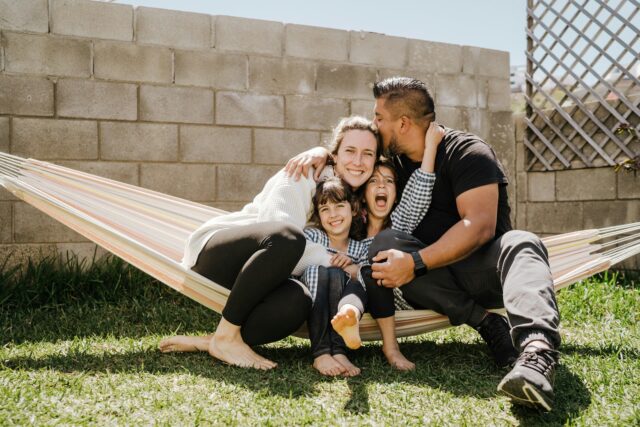Forgiving your parents for the things they’ve done wrong can be hard.

They’ve shaped your life in profound ways, for better or worse, and those wounds run deep. But holding on to anger and resentment will only keep poisoning you from the inside. Forgiving them isn’t about letting them off the hook or condoning hurtful behaviour. It’s about freeing yourself from the past so you can heal and move forward. It’s a process, and it won’t happen overnight, but it is possible. Here’s how.
1. Acknowledge your pain

Don’t minimise or deny the hurt you experienced. Give yourself permission to feel all the messy, complicated emotions, even the ugly ones like rage and hatred. Pushing it down and pretending it didn’t happen will only make it fester. Face it head on, cry, scream into a pillow, whatever you need to do to release it. Acknowledging the impact of your parents’ actions is the first step in healing those wounds. Your pain is valid, even if they never recognise it.
2. Write a brutally honest letter

Get all your thoughts and feelings out on paper. Don’t hold back or censor yourself. Say everything you wish you could say to your parents, cursing and all. Let it rip. The caveat is this letter is for your eyes only. Burn it, rip it up, delete it after. This isn’t about attacking them, it’s about unburdening yourself. Putting words to your experience is cathartic and helps you process the hurt in a safe way without causing more damage.
3. Recognise their humanity

Your parents are flawed human beings, just like everyone else. They have their own unresolved pain, trauma, and limitations that influenced how they parented you. This context doesn’t excuse their behaviour, but it can help you understand it and have some compassion. They likely weren’t trying to screw you up on purpose. Seeing their humanity doesn’t mean you have to like them or agree with their choices. It just means accepting the reality of who they are.
4. Stop wishing for an apology

The apology you desperately want from them may never come. Even if it does, it may not give you the closure or validation you seek. They may never take full responsibility, see how they hurt you, or change their behaviour. Waiting for them to apologise keeps you stuck and gives them power over your healing. Accept that you may never get the acknowledgement you deserve. Validate yourself and find your own closure without depending on them to give it to you.
5. Grieve for what you didn’t get
 Source: Pexels
Source: Pexels Maybe you never got the love, safety, praise, or support you needed from your parents. Grieve for the childhood you deserved but didn’t have. Cry, get angry, feel the sadness deeply. Grieving is how you honour your past self and let go of the fantasy of what could have been. It’s okay to still feel that loss as an adult. Letting yourself fully grieve is what ultimately allows you to accept the reality and move forward. Don’t rush the process.
6. Reparent yourself

Give yourself all the things you needed from your parents but didn’t get. Treat yourself with compassion, prioritise your needs, set healthy boundaries, pursue your dreams — be your own loving parent now. If you have an inner critic that sounds suspiciously like your mother or father, notice it and consciously replace it with an encouraging voice. Healing involves grieving the past, but also actively nurturing yourself in the present. Recovery is about both feeling the hurt and reparenting yourself with love.
7. Embrace your chosen family
 Source: Unsplash
Source: Unsplash Family is who you choose. Surround yourself with supportive friends, mentors, partners who give you the love and respect you deserve. Find your tribe — the people who celebrate you, challenge you to grow, and always have your back. Lean on this chosen family and let their love fuel your healing. You don’t have to navigate this process alone. Embrace the family you’ve found and created, even if they’re not blood related. Let their support and validation help fill the void.
8. Set boundaries

Forgiving your parents doesn’t mean letting them trample all over you now. You’re allowed to set firm boundaries about acceptable behaviour, how much contact you have, and what role (if any) they play in your adult life. Communicate your boundaries clearly, calmly and directly. Stick to them, even if your parents push back or try to make you feel guilty. You get to decide what kind of relationship is healthy for you moving forward. Boundaries are self-care.
9. Realise forgiving doesn’t mean forgetting

Forgiving your parents doesn’t mean glossing over what happened or pretending everything is fine now. It doesn’t mean you forget the hurt or stop having memories and feelings about it. Forgiveness is more about releasing the past so it doesn’t control you anymore. It’s about understanding what happened, how it affected you, taking steps to heal, and consciously choosing to let go of resentment. You can forgive and still remember. Your history is part of what shaped you.
10. Understand forgiveness is for you

You don’t forgive your parents for their sake, you do it for yours. Holding on to rage and bitterness is like drinking poison and expecting them to die. It only corrodes your own soul. Forgiving is how you free yourself from the toxic weight of resentment and pain. It’s how you reclaim your power and agency. Forgiving doesn’t mean condoning their actions, it means not letting those actions have a stranglehold on your life anymore. Do it for your own peace and healing.
11. Embrace that it’s a process
 Source: Unsplash
Source: Unsplash Forgiving your parents is a journey, not a destination. It’s not a box you check once, and you’re done. You might forgive, then get retriggered and feel the rage all over again. Old wounds may get poked. Grief may sneak up on you. That’s all part of it. Be patient and compassionate with yourself. Healing is messy and non-linear. It’s a process you recommit to over and over. Trust that every step is moving you forward, even the backward slides.
12. Consider professional support
 Source: Unsplash
Source: Unsplash Childhood wounds and family dynamics are deep and complex. Consider working with a therapist who can support you in processing the pain, understanding the impact, learning new coping tools, setting boundaries, and ultimately forgiving and releasing the past. Having a neutral third party to guide you can be immensely helpful in navigating the ups and downs. You don’t have to untangle it all alone. Let a professional help you transform your pain into empowered healing.
13. Forgive yourself too

Forgiving your parents also means forgiving yourself. Forgive yourself for any misplaced guilt, shame, self-blame about how they treated you. Forgive yourself for your own mistakes, even if you unknowingly repeated hurtful patterns. Forgive yourself for not being ready to forgive them sooner. Forgive yourself for still getting triggered sometimes, even after you’ve done the work. Extend yourself the same compassion and grace you’re learning to extend to them. You’re human and healing too. Forgive yourself, you’re doing the best you can.



